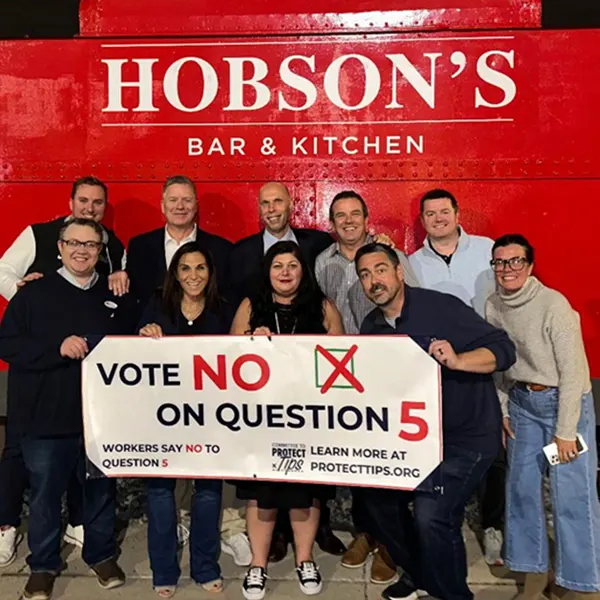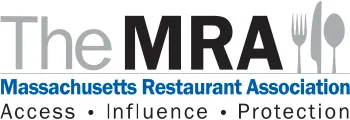MRA Advocacy
Industry Wins
Each legislative session, the MRA actively works to influence legislation at both the state and local level ensuring that the restaurant community is represented in these policy debates. Please take a moment to view our most recent accomplishments:

Preserving the Tip Credit in Massachusetts, NO ON Question 5 – stopped an out-of-state group of organizers that pushed a narrative about the tipped wage industry in Massachusetts that lacked empirical evidence and support from the very servers, bartenders, and other tipped employees they say they represent.
Extending Cocktails to-go permanently – successfully advocated for the passage of making cocktails to go permanent.

Overtime Rule Halted in the Courts Through the legal leadership of the Restaurant Law Center—helped secure a major win for restaurant operators by supporting the successful legal challenge to the Department of Labor’s overtime rule. The Restaurant Law Center played a key role in articulating the industry’s legal and economic concerns, helping to stop a rule that would have imposed significant new costs on operators, hindering their business viability.
Pro-Growth Tax Policies
These include full expensing for capital equipment purchases, allowing restaurants to invest in upgrades while managing payroll and other expenses; the 20% Qualified Business Income (QBI) deduction, which benefits the 77% of restaurants structured as pass-through entities; and the restoration of depreciation and amortization to the business interest expense deduction, freeing up capital for debt repayment and expansion.
To learn more on the new tax laws and how they affect your business, click here.
USMCA Tariff Exemptions
Ensured that restaurant-relevant goods, which comply with the U.S.-Mexico-Canada Agreement (USMCA), remained exempt from retaliatory tariffs, protecting supply chains and keeping costs down for operators and consumers.
